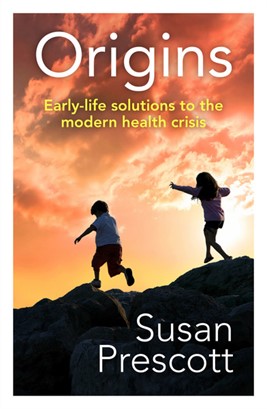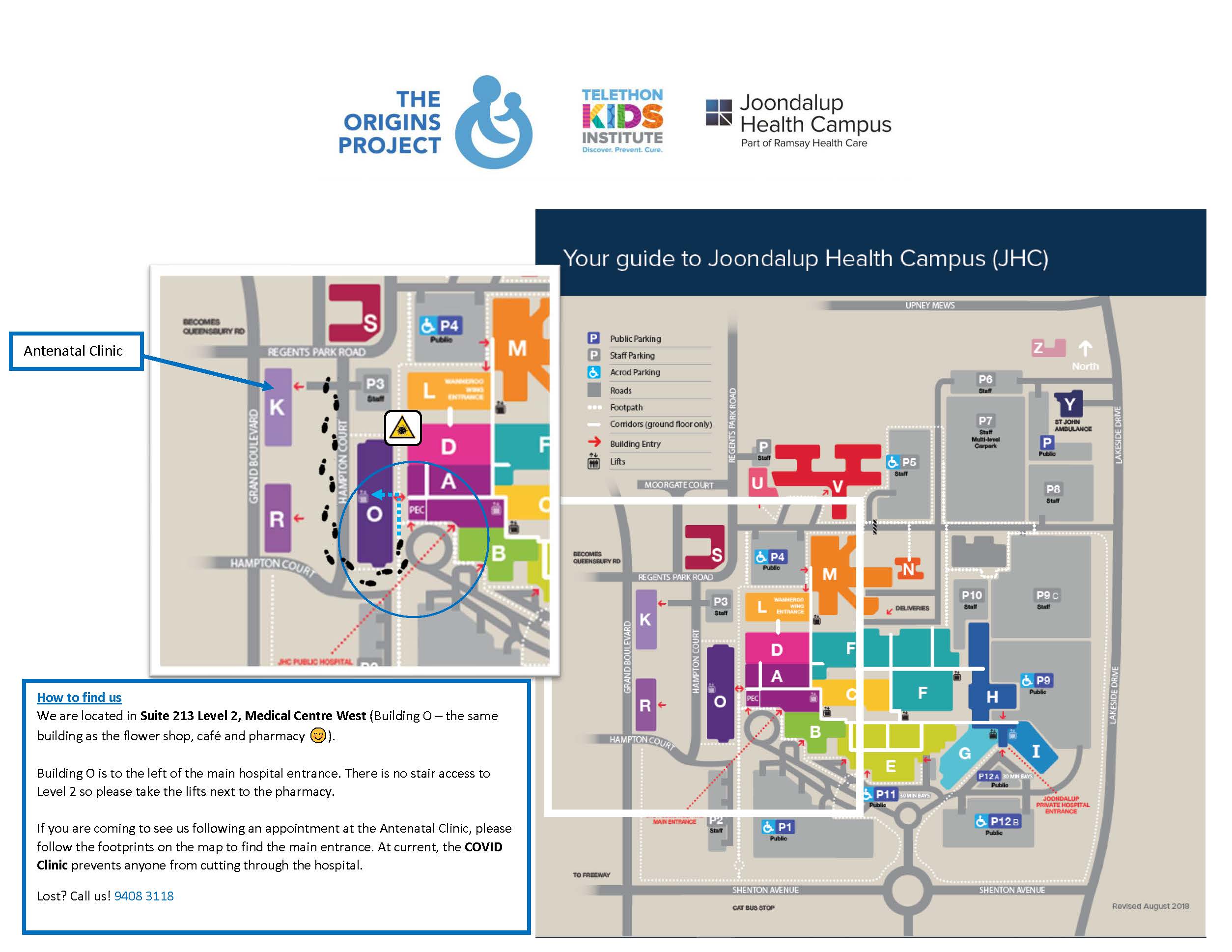Get in Touch
Get in touch with The ORIGINS Project team
ORIGINSproject@telethonkids.org.au
Find us at one of our two locations:
Telethon Kids Joondalup
Shop 51, Joondalup Gate
57 Joondalup Drive, Edgewater WA 6027
(08) 6375 6300
Suite 213, Level 2, Medical Centre West
Joondalup Health Campus
60 Shenton Avenue, Joondalup WA 6027
PLEASE NOTE: THIS OFFICE IS NO
LONGER STAFFED REGULARLY AND
DOES NOT ACCEPT SAMPLE DROP-OFFS
Support services

LifeLineWA
13 11 14 (24 hours)
Mental Health Emergency Response Line
1300 555 788 (metro)
Crisis Care
(08) 9223 1111 (metro)
1800 199 008 (country free call)
beyondblue
1300 22 4636
Health Direct
1800 022 222
PANDA National Helpline
1300 726 306 (Mon to Fri, 10am - 5pm AEST)
http://www.panda.org.au/
MensLine
1300 78 99 78 (24 Hours)

Ngala Helpline
(08) 9368 9368 (8am to 8pm 7 days a week)
Breastfeeding Centre of Western Australia
(08) 9340 1844 (8am to 4:30pm Monday to Friday)
Family Helpline
1800 643 000
Origins by Dr Susan Prescott

The field of epigenetics is revolutionising our understanding of how environment shapes our genes. Dr Susan Prescott, a leading childhood immunologist, shows how the application of epigenetics through Developmental Origins of Health and Disease (DOHaD) is changing scientific research and public health.
A poor start to life is associated with an increased risk of disorders throughout life, including cardiovascular disease, obesity, type 2 diabetes and metabolic disturbances, osteoporosis, chronic obstructive lung disease, some forms of cancer and some mental illnesses. The environment in which early life develops - at conception, and/or during fetal life, infancy and early childhood - induces changes in development that have a long term impact on later health and disease risk. Parental lifestyle and diet, smoking, obesity and exposure to endocrine disruptor chemicals and toxins, have all been shown to modulate disease risk. The effects of such exposures are often graded and subtle - they do not simply disrupt development or induce disease themselves - but can affect how rapidly disease develops in an individual. However, timely interventions may reduce such risk in individuals and also limit its transmission to the next generation.
DOHaD has significant implications for many societies and for global health policy. In Origins, Dr Prescott explains the research and shows how a focus on early life in health promotion, the exchange of knowledge between policymakers, clinical and basic scientists and the wider public, and education and training, will build capacity to assist a healthy start to life across populations.
Origins is available from:
UWA Publishing
Amazon










